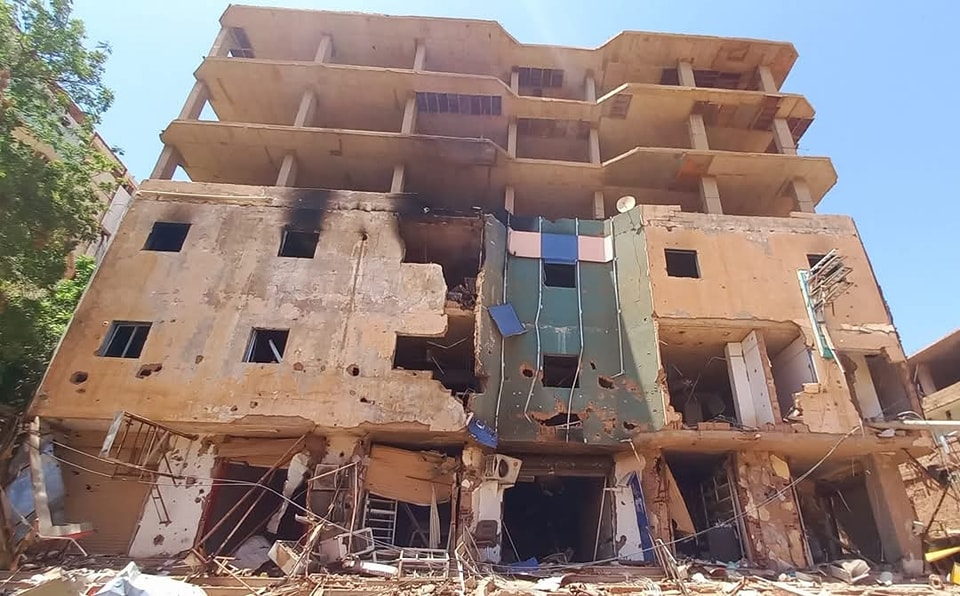Poor security, services, water, force returnees to leave Khartoum for states

Wartime destruction in Khartoum (File photo: Supplied)
Lack of security and poor services such as electricity, water, internet, and telecommunications in the Sudanese capital of Khartoum, have prompted a significant number of people to return to displacement areas, with the exception of areas of Omdurman, which are witnessing a remarkable return to life.
Bashir El Sadig, director of the Lizenfo organisation, told Radio Dabanga that most areas of Khartoum lack electricity and water services, with the exception of areas in Omdurman, which are witnessing a remarkable return to life.
He pointed to the suffering of returnees from security failures and remnants of war, explaining that a number of civilians returned from Khartoum to the states after facing great difficulties in the capital during the conflict.
As reported by Radio Dabanga last week, the Sudanese Teachers’ Committee has voiced its disagreement with a decision by the Khartoum state government’s decision to reopen schools, saying that the move ignores the deteriorating security, health, and economic reality, and post a direct threat to the lives of education workers and their families.
Unreliable communications
Callers from various parts of Khartoum told Radio Dabanga that telecommunications networks are fluctuating, and the internet is not available most of the time. They pointed out that they are forced to charge their phones, at great expense, at shops that rely on solar energy, and warned of a terrible deterioration in the humanitarian situation, and the high cost of food.
They also complain of a large-scale campaign launched by the security cell in southern and eastern Khartoum, where civilians are detained taken to unknown locations without giving reasons.
Market movement and transportation
Callers report the return of the movement of travel buses to the land port in Khartoum instead of the central market. Activists published videos showing movement in the Salama market and the opening of a number of shops, however most neighborhood markets remain closed, and the public they are forced to go to the central market, in addition to traveling long distances to get drinking water.
Khartoum Governor Ahmed Osman Hamza stressed during a visit to the Soba area, west of southern Khartoum, the importance of striving hard to introduce services and establish security, and to miss the opportunity for those he described as “stalking the security and stability of citizens” in the region. The governor vowed to review mechanisms for the distribution of humanitarian aid.
The executive director of Khartoum locality stressed the serious pursuit of the delivery of services despite the limited capabilities, calling for the formation of grassroots services committees to be a link between the local and the local community.
Soba Hilla made a number of demands in the fields of water, electricity, security, and reconsidering the distribution of humanitarian aid, demanding that it be provided quickly.











 and then
and then